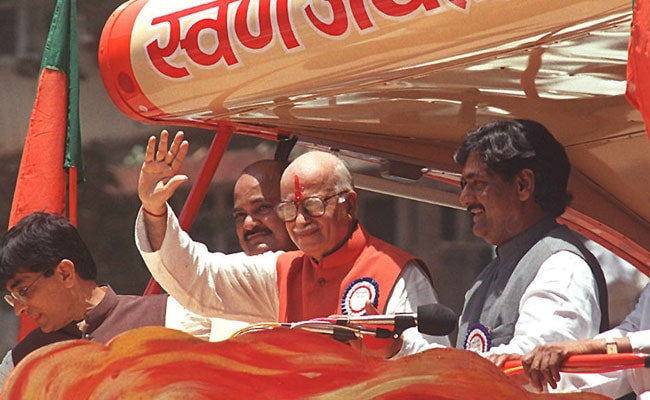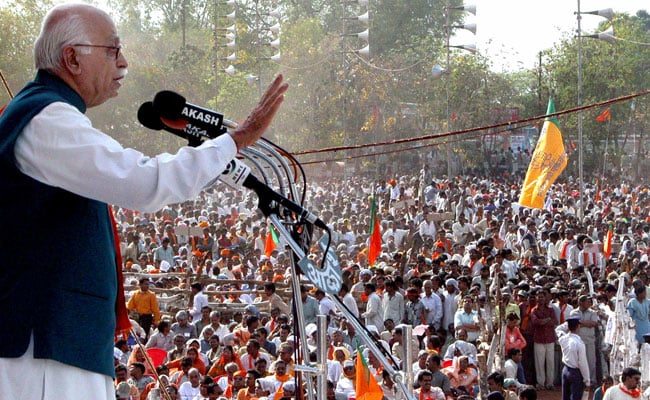Hinduism also does not believe in the logic of revenge. True, some Muslim invaders and bigoted rulers in the medieval period wantonly broke Hindu idols and demolished many temples in many parts of India. Babri Masjid itself was proof of such triumphalist iconoclasm. Irrefutable archaeological and archival evidence shows that an ancient temple existed at the place where the mosque was built in the 16th century. A majority of Hindus believe that Ram was born there and the original temple consecrated his place of birth. Only communists and ultra-secularists, whose antipathy towards Hinduism is not hidden, deny this. Such denial was one of the factors that contributed to the Hindu anger and militancy that pulled the mosque down. However, even the existence of a mosque on a plot of land believed to be Ram Janmasthan does not justify, according to the tenets of Hinduism, its demolition in a vengeful manner. One wrong does not make the other, retaliatory, wrong right, especially when the latter is committed in the name of God.
Therefore, if the Hindu community felt that a Ram Temple ought to be reconstructed at the place believed to be the birthplace of Ram, the only right course for them was to have persuaded the Muslim community to relocate the Babri Mosque. And the right course for the Muslim community was to have agreed to do so in deference to the wishes of their Hindu brethren, keeping in mind that Ram is revered by crores of Hindus, whereas Babar, after whom the mosque was named, commands no such special place in the hearts and minds of Indian Muslims.

The Supreme Court yesterday said that LK Advani and other top BJP leaders would be tried for conspiracy in the Babri Masjid demolition case (File photo)
And even as this political jostling was going on, the judiciary continued doing what it was, and continues to be, best at - prevarication. Anyone who is familiar with the Allahabad High Court's tardy functioning in the run-up to December 6 knows that the demolition of the Babri Masjid could well have been prevented if the court had expeditiously given its verdict in the case pertaining to the acquisition of land in Ayodhya by the UP government, then led by Kalyan Singh.
What was the role of LK Advani in all this? The Supreme Court has resurrected criminal conspiracy charges against him, and several other senior BJP leaders in the Babri Masjid demolition case. That it did so 25 long years after the incident is itself a strong self-indictment of the Indian judiciary.
Will Advani, who was the BJP president in 1992, be held guilty of criminal conspiracy in this case? If that were to happen, not only he but the entire BJP (now the ruling party at the Centre) and the Sangh Parivar would carry the burden and shame of culpability. But that will surely not happen because he played no role whatsoever in the conspiracy to demolish the Babri Masjid. On the contrary, he tried sincerely to prevent the criminal act. There is well-documented evidence showing that when the mobs started breaking the mosque, Advani, who was present in Ayodhya along with other leaders of the movement, was fervently urging them to stop. He did not share the sense of elation that some leaders of the movement exhibited. Later, in a two-part article in the Indian Express on 27 and 28 December 1992, he wrote: "It was the saddest day in my life. I have seldom felt as dejected and downcast as I felt on that day."

The Babri Masjid demolition came after a movement led in part by LK Advani for the Ram temple (File photo)
Advani is the tragic hero of the Ayodhya movement. He was its unquestioned chief inspirer and mobiliser because the Sangh Parivar's demand for the construction of a Ram Temple in Ayodhya would simply not have secured unprecedented mass support from Hindus all over India if he had not undertaken a nationwide Rath Yatra from Somnath in Gujarat in September-October 1990. The Rath Yatra was a novel method of mass mobilisation, and the spectacular response it received from all sections of Hindus perplexed even Advani and his colleagues. No one can refute his assessment that the Ayodhya movement marked "Hindu awakening of truly historic import."
Yet, the tragedy of the movement was that it also engendered a certain Hindu triumphalism that has grown much bigger and spread much wider now than was the case in 1992. Advani has repeatedly stated one of the principal reasons that motivated him to undertake the Rath Yatra was to counter what he called the "pseudo-secularism" of his opponents, the Congress in particular. There is no doubt that the Congress has a lot to answer for the "secularism of convenience" it practised for a long time. It has paid the price for it by losing the support of both Muslims and Hindus considerably. However, Advani cannot deny that the "pseudo-secularism" of his party's opponents has now given way to "pseudo-nationalism" of a section of the BJP's own exclusively Hindu support base. Indeed, many anti-Muslim Hindu fanatics aggressively reject and defame any kind of secularism, pseudo or genuine, as "anti-nationalism".
Advani will no doubt be acquitted as and when the court pronounces its verdict in the case involving the false charge of criminal conspiracy against him. However, for history to fully absolve him, he must speak out against the hate climate created by "pseudo-nationalists", and continue to highlight the lofty ideals of Hinduism. Specifically, he should put his full weight behind an early and amicable settlement of the mandir-masjid dispute through a trust-promoting dialogue between Hindu and Muslim communities.
(The writer was an aide to former Prime Minister Atal Bihari Vajpayee. Comments are welcome at sudheenkulkarni@gmail.com)
Disclaimer: The opinions expressed within this article are the personal opinions of the author. The facts and opinions appearing in the article do not reflect the views of NDTV and NDTV does not assume any responsibility or liability for the same.


